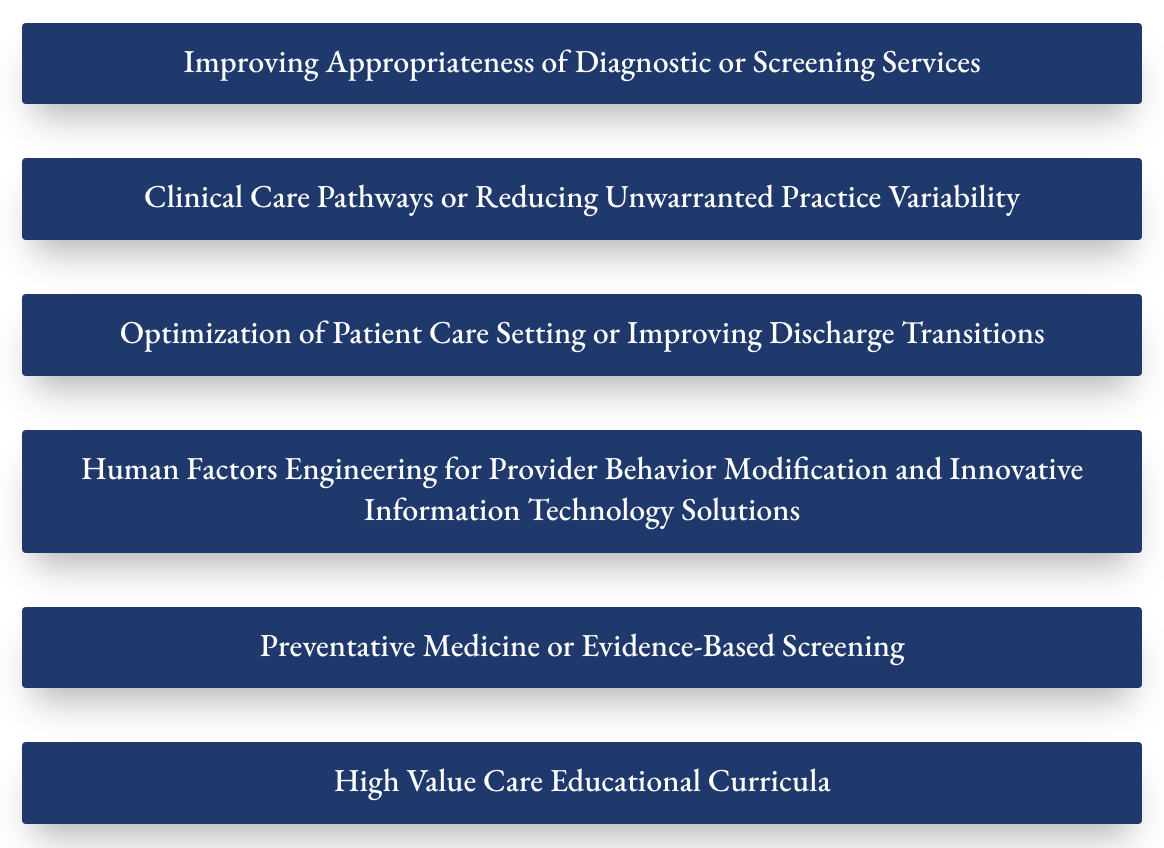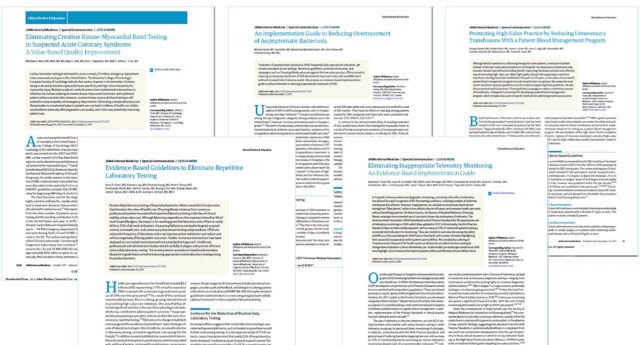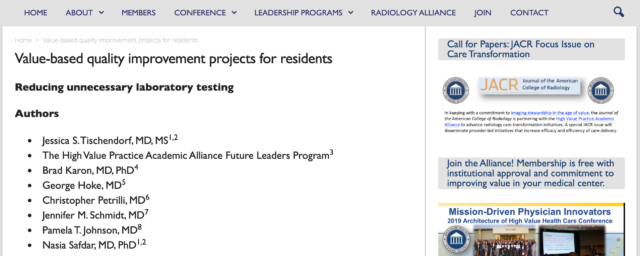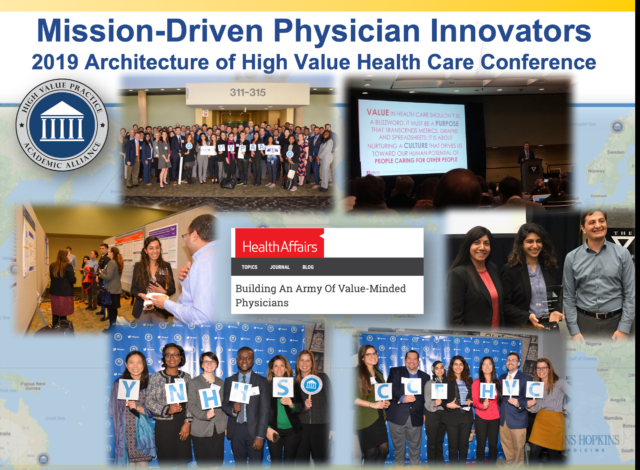From the 2019 HVPAA National Conference
Ms. Leah Chisholm (Vanderbilt University School of Medicine), Dr. Jennifer Robles (Vanderbilt University Medical Center), Dr. Matthew Marshall (Vanderbilt University Medical Center), Dr. George Nelson (Vanderbilt University Medical Center), Dr. Daniel Barocas (Vanderbilt University Medical Center)
Introduction
Surgical inpatients suspected of infection are frequently treated empirically with the antibiotic vancomycin to cover for potential Methicillin-resistant Staphylococcus aureus (MRSA) and Enterococcus faecium (EF) infection. Non-soft tissue MRSA and EF infections are relatively rare in surgical populations and vancomycin has significant costs and potential morbidities. Thus, empiric vancomycin use in non-critically ill inpatients may represent low value care. This pilot study evaluated an audit and feedback-based vancomycin de-implementation program in a single surgical department.
Objective
The aim for this study was to reduce the rate of empiric IV vancomycin use among clinically stable urology inpatients by at least 50% from a baseline average of 184 days of therapy/1000 patient days (DOT/1000d)over a 6-month time period.
Methods
An empiric vancomycin de-implementation protocol was developed in collaboration between the Urology department and the Vanderbilt University Medical Center antimicrobial stewardship committee. All surgical providers underwent an educational session about the de-implementation protocol in October 2018. Vancomycin use was then prospectively tracked and audited for protocol compliance. Patients were included in the protocol if they were clinically stable (non-ICU) inpatients suspected of infection (determined by CPT billing codes for urine, blood and/or deep abscess cultures). Patients with suspected soft tissue infection were excluded. Days of vancomycin therapy and total inpatient days were calculated for included patients on a bimonthly basis. Feedback to providers and qualitative assessments with trainees were performed monthly. Statistical process control charts and Students t-test were used for analysis.
Results
In the year before implementation, 32% (38/120) of clinicallystable urology inpatientssuspected of infection received empiric vancomycin. After initiation of the de-implementation protocol in November 2018, this was reduced to 2.4% (3/41). This represents a 92% decrease in empiric vancomycin use from the prior year. Mean DOT/1000d decreased from 184 to 19 (-89.6%) in the post-intervention period. This was statistically significant with a p-value of <0.01. There were no adverse events related to reduced empiric vancomycin use.
Conclusion
De-implementation of empiric vancomycin use in non-critically ill surgical inpatients was achieved in this pilot study on the Urology service as vancomycin use was decreased by 90%. Educational and audit/feedback methods, especially if championed by surgeons, may be successful in future vancomycin de-implementation efforts in surgical populations.
Clinical Implications
Vancomycin is associated with significant potential morbidity (allergic reaction, acute kidney injury, and infiltrative tissue necrosis) and costs. Given these potential harms, routine vancomycin use must be justified by substantial potential benefit. However, both MRSA and EF non-soft tissue infection are rare in the clinically stable urologic inpatient population and thus empiric vancomycin use is not clinically necessary. This study shows that low-value empiric vancomycin use in this population can be nearly eliminated with a simple intervention, resulting in increased patient safety and decreased costs.
Figures






